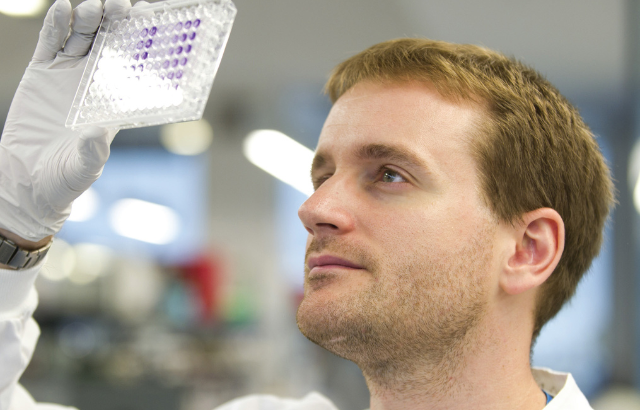Dr Adrian Biddle recognised at Animal Free Research UK Pioneer and Spotlight Awards
Dr Adrian Biddle has been awarded the inaugural Outstanding Scientist 2023 at the awards which celebrate the next generation of future animal free researchers and innovators in science and medicine.

Dr Adrian Biddle
Animal Free Research UK’s Science Director Dr Jarrod Bailey said: “Our Outstanding Scientist 2023, Dr Adrian Biddle, has made a notable contribution to the field of pioneering animal-free cancer research at the Blizard Institute, Queen Mary University of London, inspiring countless young scientists to follow in his footsteps."
Dr Adrian Biddle said: “I am deeply honoured to win this Animal Free Research award. I have witnessed, over the past decade, the fantastic work that Animal Free Research UK does to raise the profile of animal free research approaches in UK bioscience. It has been really rewarding to have been able to play a role in this. The future of animal free research is certainly bright, and I look forward to a future of technological innovation that enables further replacement of animals in research.”
In 2016, Dr Biddle was appointed to the DHT lectureship in animal replacement science within the Blizard Institute.
He runs his own lab at the Institute which is part of The Animal Replacement Centre of Excellence (ARC) at Queen Mary, originally funded by a five-year programme grant from Animal Free Research UK, who now fund a PhD studentship in the lab.
The ARC uses cutting-edge science to advance human models for human disease. It aims to reduce the number of animals currently used in cancer research by providing a unique environment for scientists to work together with the common goal to develop, validate and apply human-based models of disease. It also aims to inspire the next generation of scientists through education about animal free research and further funding opportunities.
Instead of comparing grown human skin cancer models to induced cancer in mice to see if they behave the same way, they are compared to real human cancer skin samples from hospital patients. This cuts out the need for mice completely.
Some tumours shrink after successful treatment, but then grow back again. Dr Biddle’s research aims to answer why some of these tumour stem cells survive initial cancer treatments and then go on to form secondary tumours away from the initial growth site. Most researchers use mice models to study the complex mechanisms of tumour cells travelling through the body. Yet, Dr Biddle argues that: “[tumour spread] needs to be investigated in a controlled environment where you can look at every step – you can’t do that in an animal.”
He is therefore developing a more pertinent way to model this process using human cells in a dish, with a goal to identify and target the problem-causing tumour stem cells.
Dr Biddle is also part of the Centre for Predictive in vitro Models, which provides a beacon of multidisciplinary research, training, and translation focusing on the development and use of predictive in vitro models. This incorporates a wide range of model systems including 2D and 3D cell culture models, organoids, microphysiological systems, organ-on-a-chip technology, New Approach Methodologies (NAMs), Non Animal Technologies (NATs) and other types of in vitro model.